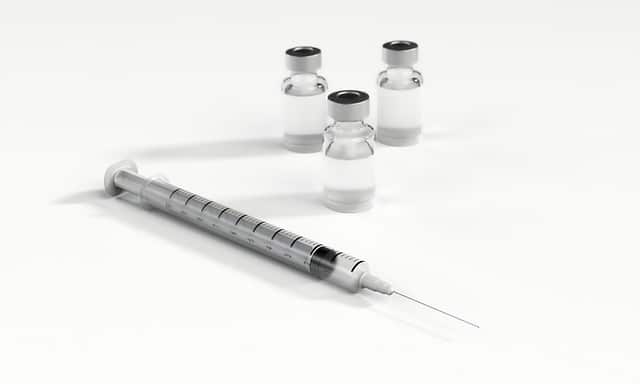Contents
Vaccine hesitancy-What is it and Why? How does it affect me? Should we worry?
It is only natural to pause, even if only for a moment, whenever we face a choice. However, when that pause can have deadly consequences for our family and others, it becomes more than a preference. There are different extremes of vaccine hesitancy, from tough medical questions to non-sensical anti-vaxxer hysteria.
Vaccine hesitancy refers to delay in acceptance or refusal of vaccines despite the availability of vaccine services. Reasons behind vaccine hesitancy are complex and encompass more than just a knowledge deficit. Examples of this hesitancy range from:
- Outright refusal to be vaccinated
- Accepting vaccination only if required by law, work, or school
- Waiting for more evidence before deciding to vaccinate
- Legitimate medical allergies to the vaccine’s ingredients
“Reluctance among certain parts of the population to receiving a vaccine is one of the biggest risks to coronavirus control efforts.”
Anthony Fauci, Director of the National Institute of Allergies and Infectious Diseases, Boston Globe 2/14/21
The reasons for Vaccine hesitancy fall into four categories:
- Lack of trust (in the vaccine or the healthcare provider)
- Complacency (it won’t happen!)
- Convenience (cost, availability)
- Ethical (religious or ethnic constraint)
WHO Chooses NOT TO VACCINATE?
Vaccines have been used for over 200 years, virtually eliminating smallpox, rabies, and polio. (Timeline | History of Vaccines). Still, a minority does not accept that scientifically-tested and approved vaccines are safe and effective. Others understand that vaccines are effective but believe they are personally not at risk.
A few have religious or ethical beliefs that vaccination is unacceptable and refuse to vaccinate, regardless of the potential harm to others.
Decision-making around vaccination entails a complex mix of cultural, psychosocial, spiritual, political, and cognitive factors. The Anti-vaxxer movement has confused many regarding all vaccines through an onslaught of misinformation and conspiracy theories.
12 Things You NEED TO KNOW about the COVID-19 VACCINES
Reality and the success of the COVID-19 vaccination
Let’s put some numbers on these groups and see how they have changed since the roll-out of the Covid-19 vaccination started on December 27th, 2020.
In early December, the KFF Covid-19 Vaccine Monitor reported that, although no vaccines were approved, 34% of the survey group saith they would get it “as soon as possible,” and a further 39% said they would “wait and see how it was working.”
By February 23rd, just two months later, 18% had received either the first or both doses of the vaccine. And the proportion of “as soon as possible” responders had increased to 37%, while the “wait and sees” decreased to 22%.
The proportion who would “definitely not” or “only if required” hardly changed. (24%-22%).KFF COVID-19 Vaccine Monitor: February 2021 | KFF
How does vaccine hesitancy affect me?
If you have completed your vaccination course, you are not directly affected.
The epidemiologists are fond of saying that ‘for each of us to be safe, we must all be safe.’ The more people who are immunized, the sooner we can control the spread of the Covid-19 pandemic.
The prevailing advice is to continue following anti-infection guidance: Wear a mask in public, continue with social-distancing, and maintain high standards of hand cleanliness hygiene.
If you are hesitant, talk to your doctor or a licensed medical professional. Be prepared to overcome your misgivings and reduce your ‘hesitation time.’
Should we worry about vaccine hesitation?
Yes. While some hesitation is natural, the ability of the COVID-19 virus to mutate grows when people choose not to vaccinate, increasing the possibility of new, more dangerous strains developing at a faster pace. From a purely immunological perspective, choosing NOT to become vaccinated is a conscious decision to increase the diseases’ virulence and likely harm even more people.
Waiting too long may mean missing an opportunity or allowing the disease to become even be dangerous.
Despite the vaccination program’s success, the decreasing rates of infection and fatalities, the number of ‘wait and sees’ remains high (22%).
Eight out of ten of those ‘wait and sees’ say that they are very or somewhat concerned that they might ‘experience severe side effects. KFF COVID-19 Vaccine Monitor: February 2021 |
There may be minor side effects, but these are typical signs that your body is building protection. //www.cdc.gov/coronavirus/2019-ncov/vaccines/expect/after.html
The same survey suggests that hesitant individuals likely to be influenced by the experiences of those close to them. If you have had a positive vaccination experience, SHARE IT!
Image by Arek Socha from Pixabay
Read the article on: What can I do after I get vaccinated?

